William Carlos Williams Poems
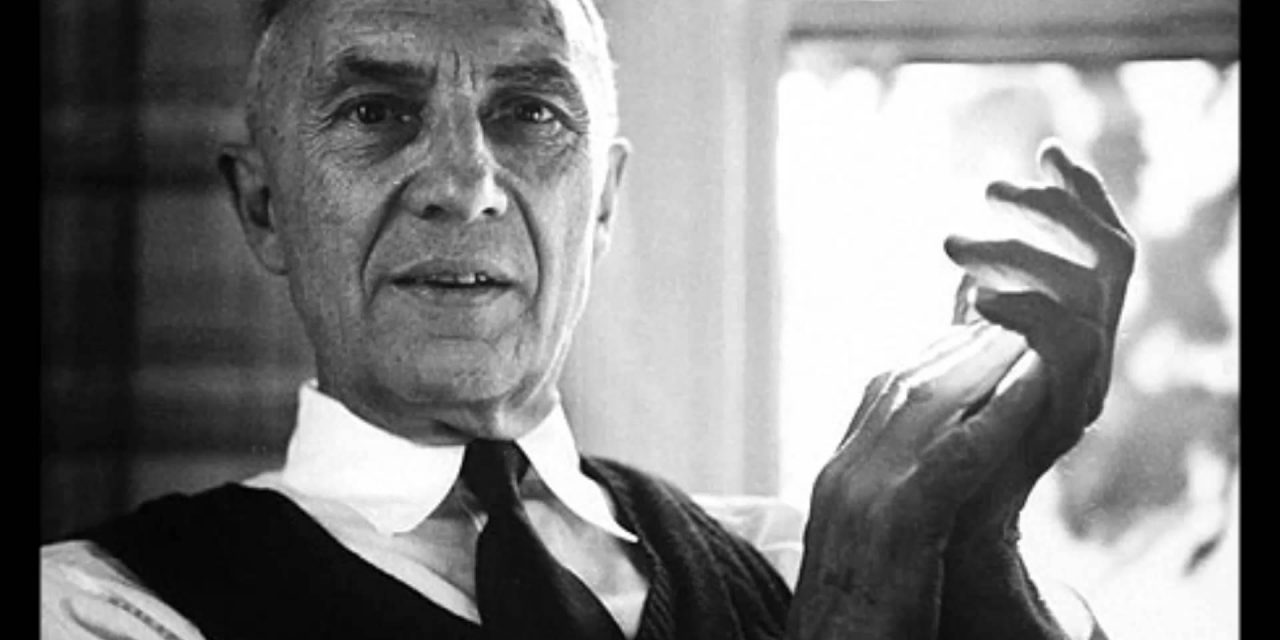
William Carlos Williams September 17, 1883 – March 4, 1963 American Poet |
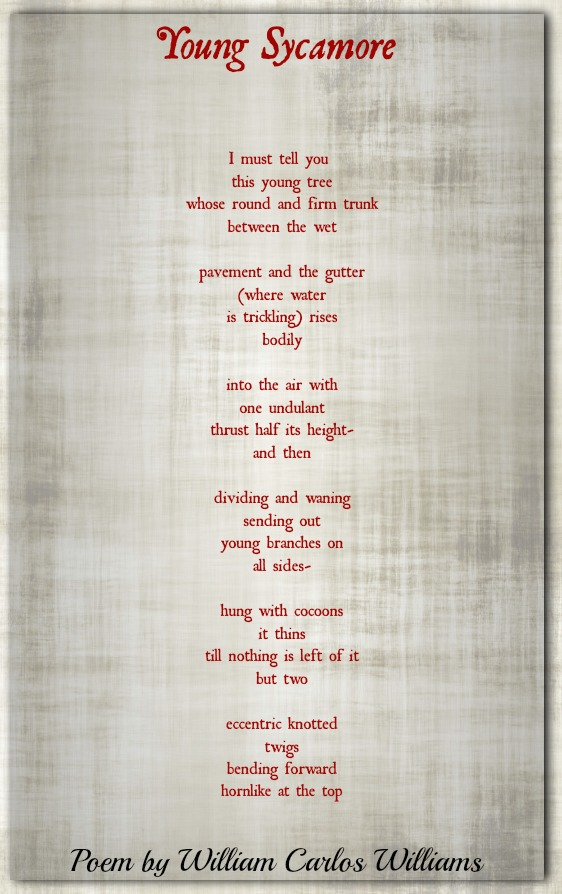 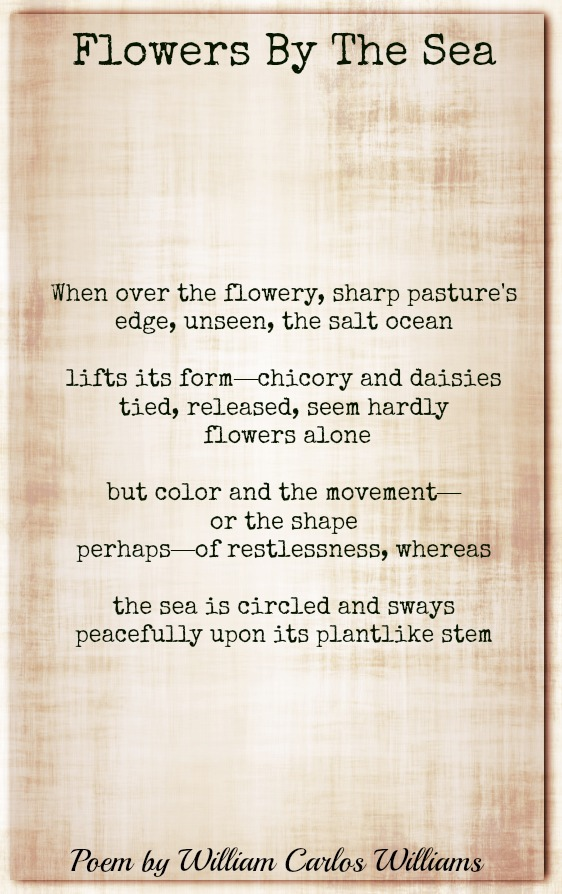 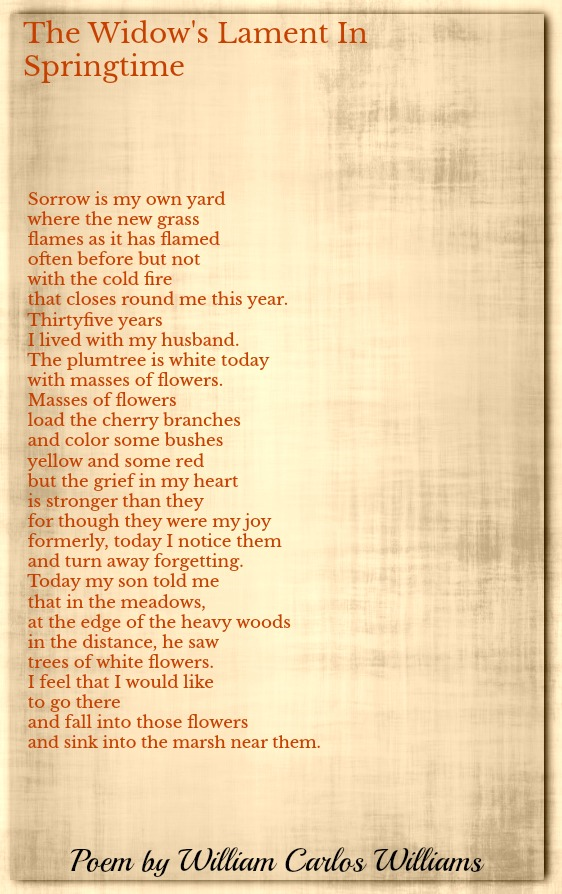 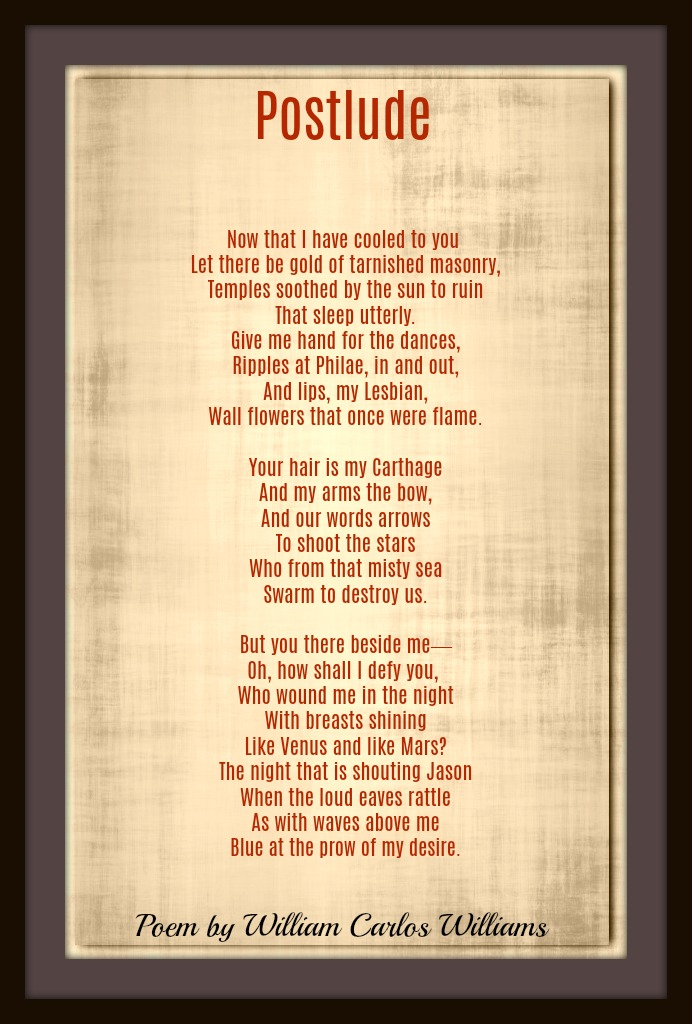 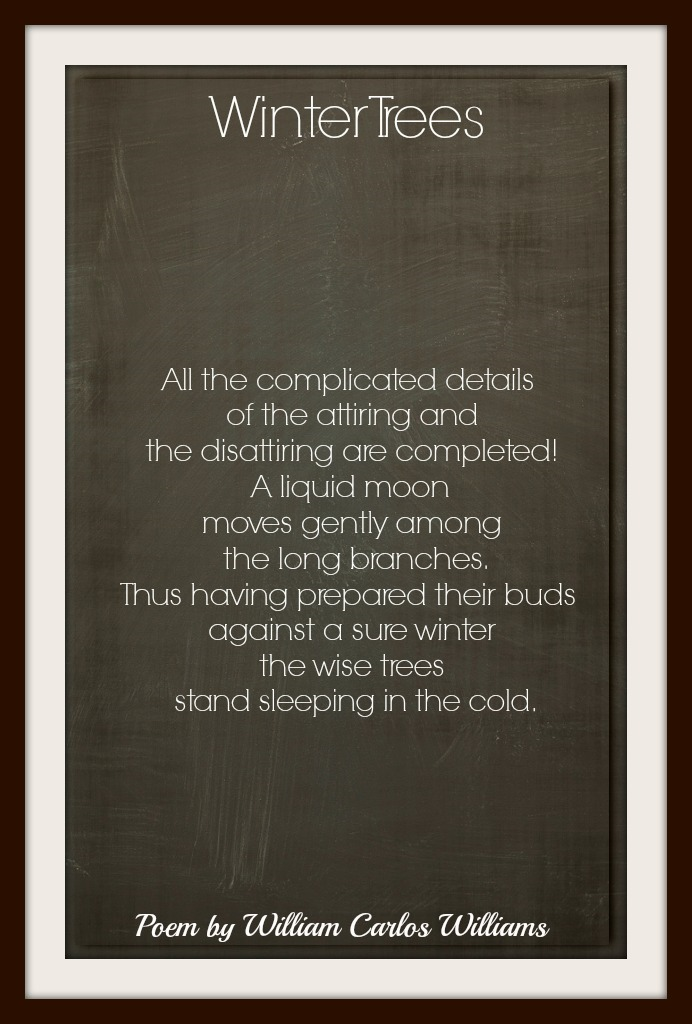 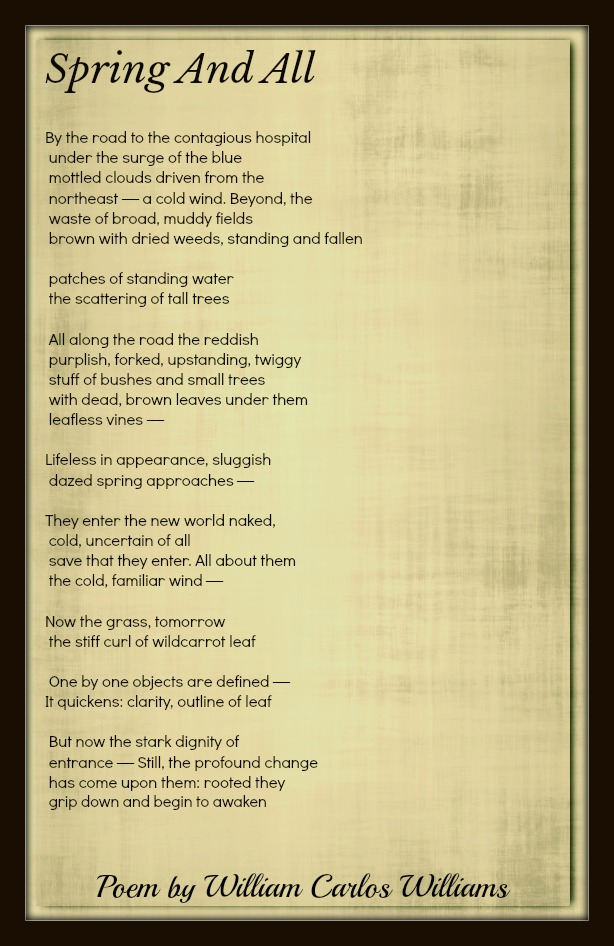 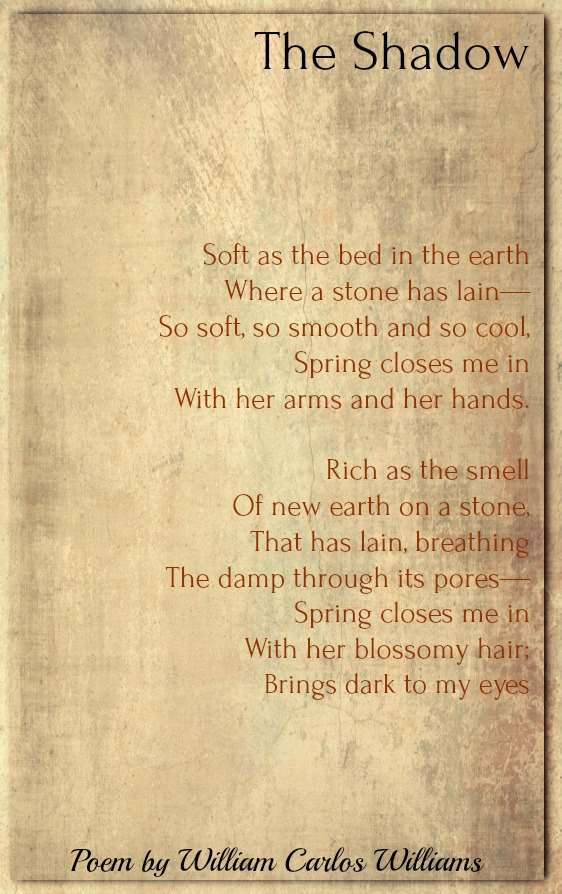 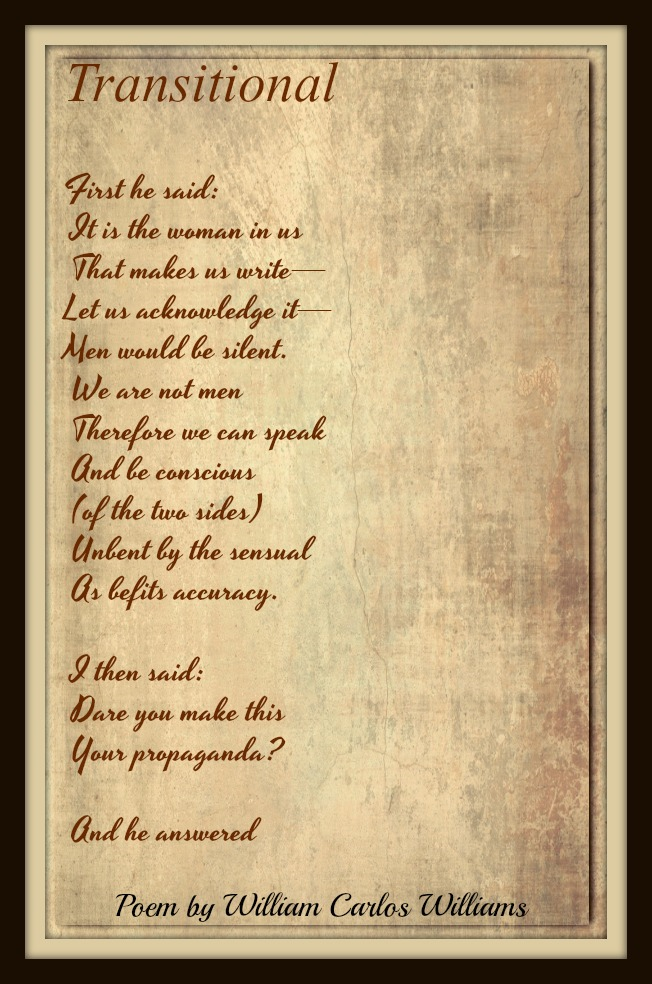 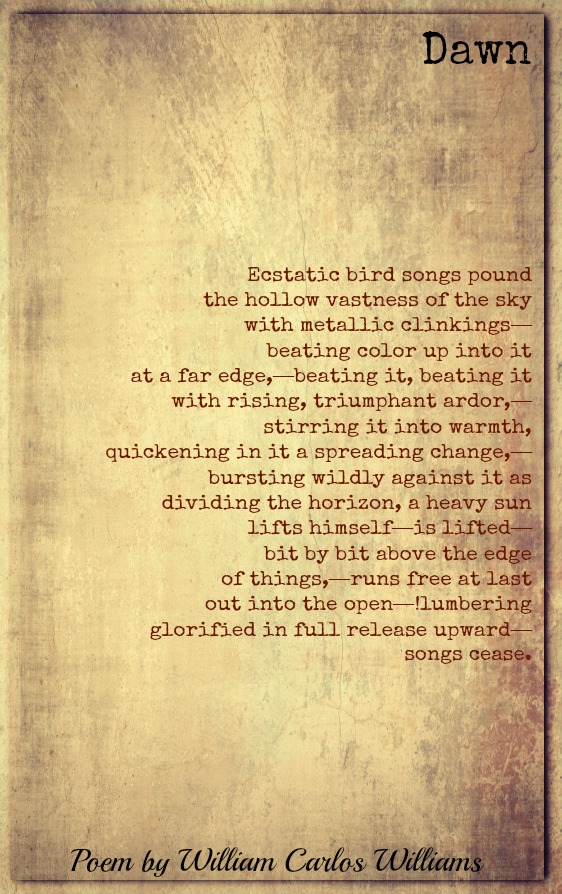 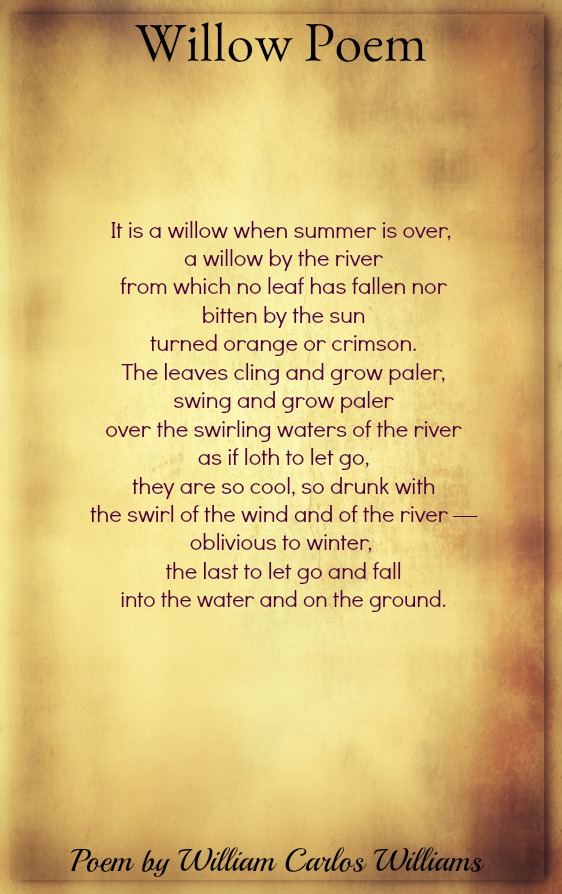 Smell! Oh strong-ridged and deeply hollowed nose of mine! what will you not be smelling? What tactless asses we are, you and I, boney nose, always indiscriminate, always unashamed, and now it is the souring flowers of the bedreggled poplars: a festering pulp on the wet earth beneath them. With what deep thirst we quicken our desires to that rank odor of a passing springtime! Can you not be decent? Can you not reserve your ardors for something less unlovely? What girl will care for us, do you think, if we continue in these ways? Must you taste everything? Must you know everything? Must you have a part in everything? The Great Figure Among the rain and lights I saw the figure 5 in gold on a red firetruck moving tense unheeded to gong clangs siren howls and wheels rumbling through the dark city. Spring And All By the road to the contagious hospital under the surge of the blue mottled clouds driven from the northeast — a cold wind. Beyond, the waste of broad, muddy fields brown with dried weeds, standing and fallen patches of standing water the scattering of tall trees All along the road the reddish purplish, forked, upstanding, twiggy stuff of bushes and small trees with dead, brown leaves under them leafless vines — Lifeless in appearance, sluggish dazed spring approaches — They enter the new world naked, cold, uncertain of all save that they enter. All about them the cold, familiar wind — Now the grass, tomorrow the stiff curl of wildcarrot leaf One by one objects are defined — It quickens: clarity, outline of leaf But now the stark dignity of entrance — Still, the profound change has come upon them: rooted they grip down and begin to awaken The Shadow Soft as the bed in the earth Where a stone has lain— So soft, so smooth and so cool, Spring closes me in With her arms and her hands. Rich as the smell Of new earth on a stone, That has lain, breathing The damp through its pores— Spring closes me in With her blossomy hair; Brings dark to my eyes. Light Hearted Author The birches are mad with green points the wood's edge is burning with their green, burning, seething—No, no, no. The birches are opening their leaves one by one. Their delicate leaves unfold cold and separate, one by one. Slender tassels hang swaying from the delicate branch tips— Oh, I cannot say it. There is no word. Black is split at once into flowers. In every bog and ditch, flares of small fire, white flowers!—Agh, the birches are mad, mad with their green. The world is gone, torn into shreds with this blessing. What have I left undone that I should have undertaken? O my brother, you redfaced, living man ignorant, stupid whose feet are upon this same dirt that I touch—and eat. We are alone in this terror, alone, face to face on this road, you and I, wrapped by this flame! Let the polished plows stay idle, their gloss already on the black soil. But that face of yours—! Answer me. I will clutch you. I will hug you, grip you. I will poke my face into your face and force you to see me. Take me in your arms, tell me the commonest thing that is in your mind to say, say anything. I will understand you—! It is the madness of the birch leaves opening cold, one by one. My rooms will receive me. But my rooms are no longer sweet spaces where comfort is ready to wait on me with its crumbs. A darkness has brushed them. The mass of yellow tulips in the bowl is shrunken. Every familiar object is changed and dwarfed. I am shaken, broken against a might that splits comfort, blows apart my careful partitions, crushes my house and leaves me—with shrinking heart and startled, empty eyes—peering out into a cold world. In the spring I would be drunk! In the spring I would be drunk and lie forgetting all things. Your face! Give me your face, Yang Kue Fei! your hands, your lips to drink! Give me your wrists to drink— I drag you, I am drowned in you, you overwhelm me! Drink! Save me! The shad bush is in the edge of the clearing. The yards in a fury of lilac blossoms are driving me mad with terror. Drink and lie forgetting the world. And coldly the birch leaves are opening one by one. Coldly I observe them and wait for the end. And it ends. Dawn Ecstatic bird songs pound the hollow vastness of the sky with metallic clinkings— beating color up into it at a far edge,—beating it, beating it with rising, triumphant ardor,— stirring it into warmth, quickening in it a spreading change,— bursting wildly against it as dividing the horizon, a heavy sun lifts himself—is lifted— bit by bit above the edge of things,—runs free at last out into the open—!lumbering glorified in full release upward— songs cease. Heel & Toe To The End Gagarin says, in ecstasy, he could have gone on forever he floated at and sang and when he emerged from that one hundred eight minutes off the surface of the earth he was smiling. Then he returned to take his place among the rest of us from all that division and subtraction a measure to and heel heel and toe he felt as if he had been dancing Arrival And yet one arrives somehow, finds himself loosening the hooks of her dress in a strange bedroom— feels the autumn dropping its silk and linen leaves about her ankles. The tawdry veined body emerges twisted upon itself like a winter wind . . . ! A Celebration A middle-northern March, now as always— gusts from the South broken against cold winds— but from under, as if a slow hand lifted a tide, it moves—not into April—into a second March, the old skin of wind-clear scales dropping upon the mold: this is the shadow projects the tree upward causing the sun to shine in his sphere. So we will put on our pink felt hat—new last year! —newer this by virtue of brown eyes turning back the seasons—and let us walk to the orchid-house, see the flowers will take the prize tomorrow at the Palace. Stop here, these are our oleanders. When they are in bloom— You would waste words It is clearer to me than if the pink were on the branch. It would be a searching in a colored cloud to reveal that which now, huskless, shows the very reason for their being. And these the orange-trees, in blossom—no need to tell with this weight of perfume in the air. If it were not so dark in this shed one could better see the white. It is that very perfume has drawn the darkness down among the leaves. Do I speak clearly enough? It is this darkness reveals that which darkness alone loosens and sets spinning on waxen wings— not the touch of a finger-tip, not the motion of a sigh. A too heavy sweetness proves its own caretaker. And here are the orchids! Never having seen such gaiety I will read these flowers for you: This is an odd January, died—in Villon's time. Snow, this is and this the stain of a violet grew in that place the spring that foresaw its own doom. And this, a certain July from Iceland: a young woman of that place breathed it toward the South. It took root there. The color ran true but the plant is small. This falling spray of snow-flakes is a handful of dead Februaries prayed into flower by Rafael Arevalo Martinez of Guatemala. Here's that old friend who went by my side so many years: this full, fragile head of veined lavender. Oh that April that we first went with our stiff lusts leaving the city behind, out to the green hill— May, they said she was. A hand for all of us: this branch of blue butterflies tied to this stem. June is a yellow cup I'll not name; August the over-heavy one. And here are— russet and shiny, all but March. And March? Ah, March— Flowers are a tiresome pastime. One has a wish to shake them from their pots root and stem, for the sun to gnaw. Walk out again into the cold and saunter home to the fire. This day has blossomed long enough. I have wiped out the red night and lit a blaze instead which will at least warm our hands and stir up the talk. I think we have kept fair time. Time is a green orchard. The Approaching Hour You Communists and Republicans! all you Germans and Frenchmen! you corpses and quickeners! The stars are about to melt and fall on you in tears. Get ready! Get ready! you Papists and Protestants! you ****s and you virtuous! The moon will be bread and drop presently into your baskets. Friends and those who despise and detest us! Adventists and those who believe nothing! Get ready for the awakening. First Praise Lady of dusk-wood fastnesses, Thou art my Lady. I have known the crisp, splintering leaf-tread with thee on before, White, slender through green saplings; I have lain by thee on the brown forest floor Beside thee, my Lady. Lady of rivers strewn with stones, Only thou art my Lady. Where thousand the freshets are crowded like peasants to a fair; Clear-skinned, wild from seclusion They jostle white-armed down the tent-bordered thoroughfare Praising my Lady. Metric Figure There is a bird in the poplars! It is the sun! The leaves are little yellow fish swimming in the river. The bird skims above them, day is on his wings. Phoebus! It is he that is making the great gleam among the poplars! It is his singing outshines the noise of leaves clashing in the wind. The Tulip Bed The May sun—whom all things imitate— that glues small leaves to the wooden trees shone from the sky through bluegauze clouds upon the ground. Under the leafy trees where the suburban streets lay crossed, with houses on each corner, tangled shadows had begun to join the roadway and the lawns. With excellent precision the tulip bed inside the iron fence upreared its gaudy yellow, white and red, rimmed round with grass, reposedly. Thursday I have had my dream—like others— and it has come to nothing, so that I remain now carelessly with feet planted on the ground and look up at the sky— feeling my clothes about me, the weight of my body in my shoes, the rim of my hat, air passing in and out at my nose—and decide to dream no more. Waiting When I am alone I am happy. The air is cool. The sky is flecked and splashed and wound with color. The crimson phalloi of the sassafras leaves hang crowded before me in shoals on the heavy branches. When I reach my doorstep I am greeted by the happy shrieks of my children and my heart sinks. I am crushed. Are not my children as dear to me as falling leaves or must one become stupid to grow older? It seems much as if Sorrow had tripped up my heels. Let us see, let us see! What did I plan to say to her when it should happen to me as it has happened now? Berket And The Stars A day on the boulevards chosen out of ten years of student poverty! One best day out of ten good ones. Berket in high spirits—"Ha, oranges! Let's have one!" And he made to snatch an orange from the vender's cart. Now so clever was the deception, so nicely timed to the full sweep of certain wave summits, that the rumor of the thing has come down through three generations—which is relatively forever! To A Poor Old Woman munching a plum on the street a paper bag of them in her hand They taste good to her They taste good to her. They taste good to her You can see it by the way she gives herself to the one half sucked out in her hand Comforted a solace of ripe plums seeming to fill the air They taste good to her Youth And Beauty I bought a dishmop— having no daughter— for they had twisted fine ribbons of shining copper about white twine and made a tousled head of it, fastened it upon a turned ash stick slender at the neck straight, tall— when tied upright on the brass wallbracket to be a light for me and naked as a girl should seem to her father. The Cold Night It is cold. The white moon is up among her scattered stars— like the bare thighs of the Police Sergeant's wife—among her five children . . . No answer. Pale shadows lie upon the frosted grass. One answer: It is midnight, it is still and it is cold . . . ! White thights of the sky! a new answer out of the depths of my male belly: In April . . . In April I shall see again—In April! the round and perfects thighs of the Police Sergeant's wife perfect still after many babies. Oya! |
Return To Famous Poems
William Carlos Williams Poems
